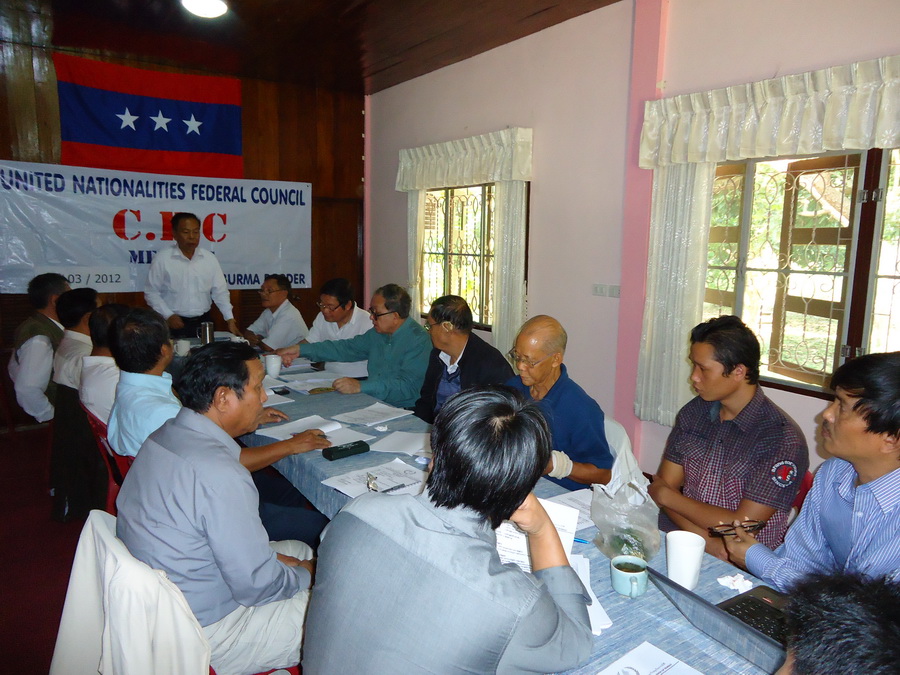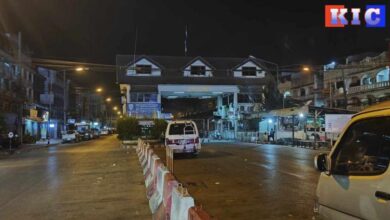Ethnic Council rejects flawed 2008 constitution and government ‘reforms’

The United Nationalities Federal Council (UNFC) leadership has stated that they will not consider proposals to form political parties or accept Burma’s flawed 2008 constitution while the parliament is dominated by military figures.
Mutual mistrust is rife between Burma’s government and ethnic groups, which have often been in armed conflict with one another.
“For the method of negotiation to be acceptable to both sides it is necessary for the venue to be in a place, where either side cannot use its influence.” The UNFC said in a statement.
Naing Han Tha, secretary of the UNFC said that accepting either proposal does nothing for the rights of Burma’s ethnic minorities.
“If they [Burma’s government] let us compete under their influence, this does not work for us and we won’t gain anything by it. It is not fair to hold dialogue in a place that is under the influence and control of the powerful.”
At the same time as rejecting the government’s agenda, the UNFC also calls for dialogue with the government, but with international observers present as mediators.
“When there are no international observers, the more powerful side can agree on a point and they can also easily make it void if they want to or they can change it according to what they want. This situation is now a reality and could easily happen,” Naing Han Tha added.
The UNFC stated that any peace proposal they agree to must contain the following elements:
– Peace dialogue to be carried out in a neutral space “where either side cannot use its influence”
– The presence of an “impartial international body” to watch over proceedings
– All ethnic nationalities represented, including local community based organisations, armed ethnic groups, political parties and community leaders.
– The establishment of Burma as a ‘federation of states’ encompassing Burma’s different ethnic groups
– That these changes occur before Burma’s general election in 2015
Meeting from 16 to the 18th of July, the UNFC also discussed the ongoing conflict between Burma’s military and the Kachin Independence Army, in Kachin State – some commentators have claimed that as many as 3,000 Burma Army soldiers have already died since hostilities erupted in June last year and as many as 70,000 civilians forced from their homes.
The UNFC has accused Thein Sien’s military-backed government of giving no regard to calls of a nationwide ceasefire – the Kachin conflict is now in it’s second year.
The Council also alleges that Thein Sien’s government has overseen intensification in ethnic conflict in recent months. According to the UNFC, Burma Army troops in June used heavy weapons bombardment in an attack on the Shan State Army-North (SSA-N) despite a ceasefire agreement being in place between the government forces and the SSA.
The Shan State Progress Party (SSPP), of which the SSA-N is a subordinate body, is a member of the UNFC.
Ethnic leaders cite this as evidence that Burma’s military-backed government is not fully committed to a lasting and mutually beneficial peace process.




